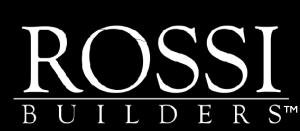In today’s quickly developing instructional landscape, the need for trustworthy, comprehensive, and obtainable resources of details is higher than ever before. Research Encyclopedias have become crucial devices for pupils worldwide, providing a wide range of knowledge at their fingertips. This post delves into the relevance of Homework Encyclopedias, their advancement over the years, and their duty in sustaining academic success.

As standard education and learning methods adjust to electronic advancements, learning sources like Homework Encyclopedias continue to function as foundations of trainee learning, providing organized and curated material. Comprehending their value and impact can assist students leverage these sources successfully in their academic trip.
The Development of Homework Encyclopedias
The idea of encyclopedias dates back to ancient worlds, where expertise was diligently documented and protected. From the scrolls of the Collection of Alexandria to the published volumes of the Renaissance, encyclopedias have actually historically been valued as databases of human success and understanding.
With the advent of the electronic age, encyclopedias have actually transcended their traditional print format, ending up being much more interactive and available. Digital Research Encyclopedias now provide multimedia sources, including video clips, graphics, and interactive modules, which boost the discovering experience and make complex topics a lot more comprehensible.
Today’s Homework Encyclopedias are not just available online yet are also continually updated to ensure the details stays present and relevant. This shift not only equalizes access to info however additionally transforms just how trainees involve with their research studies, helping with a deeper understanding via varied knowing modalities.
Trick Advantages of Homework Encyclopedias
Research Encyclopedias supply numerous advantages for students, instructors, and also moms and dads supporting their children’s finding out endeavors.

They act as reputable buddies, supplying structured details that aids in scholastic research and research completion.
Amongst one of the most substantial benefits is their capacity to give confirmed and detailed material. Unlike open-source information, which can typically be undependable, encyclopedias are curated by professionals, making sure accuracy and trustworthiness. This reliability is essential for pupils who require trustworthy details for their jobs and research tasks.
Additionally, Research Encyclopedias support independent discovering and important thinking. By encouraging students to seek information proactively, they promote a sense of interest and initiative, which are important abilities for lifelong discovering.
- Comprehensive Material: Encyclopedias cover a wide series of subjects, offering details on topics spanning various self-controls.
- Interactive Discovering: Multimedia aspects involve various understanding designs, making details digestible and interesting.
- Integrity: Curated by experts, encyclopedias offer reliable and precise info.
- Continuous Updates: Routine updates guarantee trainees have access to one of the most existing information readily available.
Comprehending these benefits allows pupils to maximize their learning prospective by efficiently using Research Encyclopedias as part of their research study regimen.
Just How to Utilize Homework Encyclopedias Effectively
To make one of the most out of Research Encyclopedias, pupils must take on calculated methods to their usage. This starts with familiarizing themselves with the layout and navigating of these resources. Understanding just how to search for details topics or just how to utilize index features can substantially minimize time invested in study.
An additional crucial strategy is incorporating encyclopedias into wider research techniques. While encyclopedias provide fundamental expertise, they ought to be used together with various other study methods for a much more nuanced understanding of complicated subjects. This mix of sources broadens a trainee’s perspective and grows their understanding of topic.
In addition, pupils need to leverage the multimedia includes readily available in digital encyclopedias. These can help with a better understanding of hard ideas via visualization and interactive understanding, therefore boosting retention and understanding.
Top Research Encyclopedias Available Today
The globe of Homework Encyclopedias is substantial, with many options offered for students of different age groups and scholastic degrees. Below are some extremely concerned encyclopedias that have stood the examination of time and remain to support student success successfully.
- Brittanica Online: Widely known for its reliable material, Britannica supplies extensive details on a wide array of subjects, with regular updates and multimedia elements.
- World Book Online: Provides an easy-to-navigate interface and tailored resources for various age groups, making sure material is age-appropriate and engaging.
- Encarta (Historical): Though no more in publication, Encarta set a criterion for electronic encyclopedias and remains a noteworthy mention for its pioneering payments.
- Khan Academy: While not a conventional encyclopedia, Khan Academy uses an extensive library of instructional material in a layout that complements traditional encyclopedic sources.
These sources offer an exceptional starting factor for students seeking high-quality university and school q&a information. Their range ensures that individuals can find the ideal fit for their details learning requirements and preferences.
The Future of Research Encyclopedias
As innovation continues to development, the future of Homework Encyclopedias shows up promising, with technologies targeted at boosting user experience and accessibility to info.

Expert system is most likely to play a significant duty, providing individualized understanding courses and even more instinctive search functions, which could transform just how trainees engage with these sources.
In addition, the combination of virtual and enhanced fact can open up brand-new chances for experiential understanding, allowing pupils to engage with content in immersive settings. Such growths are set to redefine the academic landscape, making discovering more interactive and impactful.
The Role of Educators and Students
In this advancing context, instructors and students need to adjust to leverage these technological innovations efficiently. Teachers can direct pupils in using encyclopedias as part of their curriculum, encouraging crucial thinking and study skills.
For students, the vital hinge on remaining curious and available to checking out new tools and sources. By accepting Research Encyclopedias and comparable academic technologies, they can improve their academic efficiency and prepare for the difficulties of tomorrow’s knowledge-driven world.

